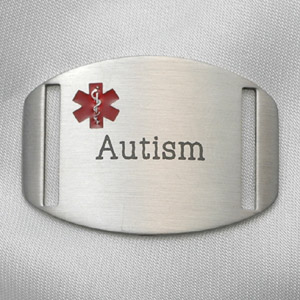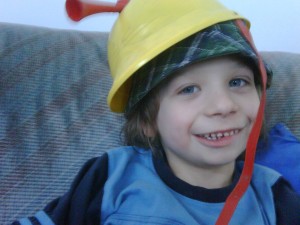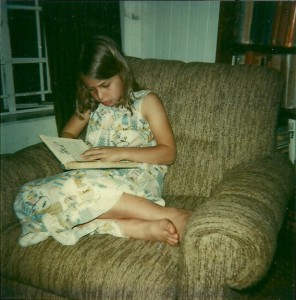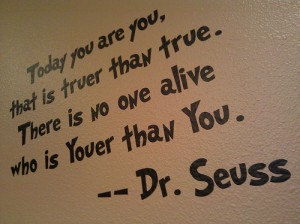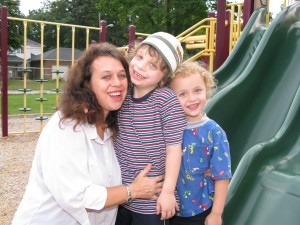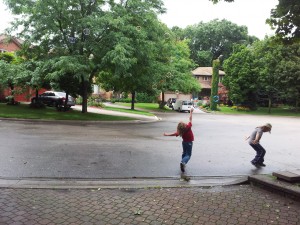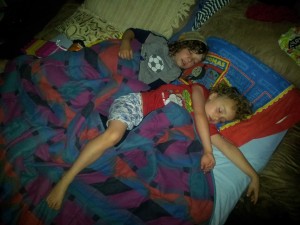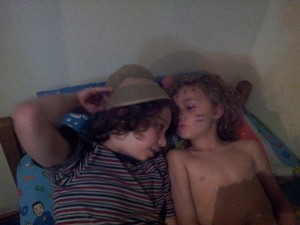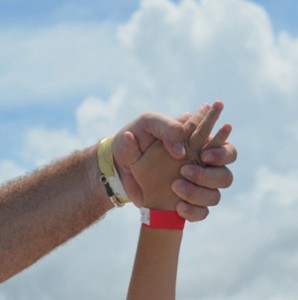Today is Day 2 of the National Health Blog Posting Month challenge, and one of the suggested prompts invites writers to address the weirdest aspect of their health. As a health advocate for my son George, who has autism, I am often struck by how odd this condition is compared with many other developmental disabilities.
One of the things that makes it different is the reluctance of many people, both within and outside of the autism community, to use the word “disabled”. Parents of children with Down Syndrome or cerebral palsy are allowed to refer to their kids as “disabled”, but I always have people trying to force me to use the term “differently abled”.
Yes, there are many things that George can do. He can read fluently, he was doing multiplication in his head long before anyone formally taught it to him, he has superb problem solving skills, and he knows his way around a computer better than I do. But when he comes home from school, he cannot tell me what his day was like. I have to keep a firm hold of him when we are out on family walks because he does not understand the danger of running out into the traffic. He does not know how to play with other kids. He will only take a shower if someone is in the shower with him, and at nine, he still needs hand-on-hand assistance and extensive prompting to accomplish the task of brushing his teeth.
To me, the term “differently abled” implies that George can do anything other kids his age can do, but in different ways. But that is not the case. There are things that George simply cannot do for himself – basic daily living skills that other kids master by the time they’re six. In my book, George is developmentally disabled.
And so what if he is? I am immensely proud of George. I adore his sweet, loving nature and I admire his absolute determination to accomplish his goals. Even though he is still so young, he shows a steel core of tenacity. This is not a kid who gives up. I feel absolutely no shame or embarrassment about the fact that he has a disability.
So why not tell it like it is? Why should there be a need to couch it in pretty language? Are these well-meaning attempts to avoid use of the word “disabled” not undermining our attempts to ensure acceptance and inclusion for people with all kinds of disabilities?
What are your thoughts? Are we heading into territory where the word “disability” cannot be used? Would you or do you use that word with reference to your own special needs child?





